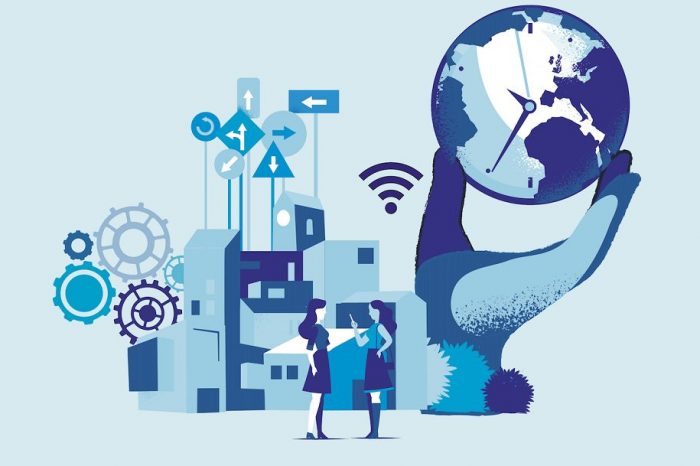Resilience or fragility? SAS presents 10 predictions for the year 2023

SAS, the global leader in analytics, closely follows the business sector and sought to find out what will be the most significant trends to watch in 2023. To find out whether technology, supply chains, artificial intelligence or others will be key elements in As the year has just begun, SAS spoke to several key people in the company, and here are their answers and predictions:
Low-code analytics solutions bring AI closer to the masses
“In 2023, the concept of ‘analytics for anyone, anywhere’ will not only be a major trend to watch, but also a pivotal way in which companies will reach maturity in the field of artificial intelligence. As organizations continue to deploy technologies such as machine learning, computer vision, IoT, analytics and others to gain new understanding capabilities, employees of various skill levels will be able to participate in analytics processes thanks to low or no-code solutions” Jared Peterson, Senior Vice President of Engineering
Examining human biases can solve the problem of AI bias
“It is already well known and accepted that artificial intelligence can suffer from bias. In 2023, the industry will accept that biases are both all around us and within each of us; they are defining elements of the human spirit and influence the way we make decisions. Developing AI systems that can predict and ameliorate the harmful effects of biases is the first step towards gaining the confidence to move forward without repeating the mistakes of the past.” Reggie Townsend, Director of Data Ethics Practice
Data depreciation, a phenomenon to watch
“2023 will be the year when marketers will have to respond to the phenomenon of data depreciation. The imminent disappearance of third-party cookies starting in 2024 will force brands to rethink their entire customer data strategy. But the change also represents a significant opportunity for companies to abandon dishonest marketing practices, which were used on third-party cookies, and instead develop close and trusting relationships with their customers.” Jennifer Chase, Chief Marketing Officer
Financial services will rev the engines in the direction of ESG
“Amid economic turbulence, some might think that financial institutions will abandon ESG, environmental, social and governance initiatives. But early signs indicate that most banks will maintain direction and even increase efforts in these directions. A SAS-sponsored study of 500 bank executives shows that three-quarters of them believe that these financial institutions must respond to some of society’s problems. And 64% of executives believe banks have lagged behind other sectors in ESG initiatives.” Alex Kwiatkowski, Director of Global Financial Services
Esports and blockchain will reach a point of convergence
“Blockchain and Esports will continue to converge, and in the next 5-10 years the first games based on this technology will appear. The Esports industry now relies on analytics, machine learning and artificial intelligence to deliver a professional experience to both players and spectators around the world. From finding matches in games and analyzing interactions in each virtual universe, to tracking and promoting purchasable items, the amount of data to analyze in a game is practically limitless and continues to grow.” Bryan Harris, Chief Technology Officer
Industrial adoption of artificial intelligence is improving assembly lines
“Organizations will increasingly use computer vision and other AI technologies, which professionals can use in the industrial IoT environment, beyond IT experts or data scientists. Initiatives in the area of computer vision will focus on improving production, on operational efficiency but also on increasing safety.” Jason Mann, Vice President of IoT
Real-time data storage will replace classic storage spaces
“In 2023, we will see more and more organizations abandoning classic ways of storing data in favor of ones that support real-time analysis and reactions. Companies will process data as it becomes available and store it in an easily accessible format for simplified reporting. Whether we’re talking about a manufacturer monitoring IoT data streams from production equipment, or a retailer monitoring e-commerce traffic, identifying trends in real time will help avoid costly errors and capitalize opportunities when they become available.” Jay Upchurch, CIO
Digital twins will improve supply chains and reduce climate impact
“Climate change is having a negative impact on supply chains, whether it’s hindering the free movement of goods or even preventing employees who need to get to work. Supply chain teams will use digital twins and simulations to accelerate decision-making so that companies can respond more quickly to the challenges that arise in the connected supply chain.”
Dan Mitchell, Director of Global Retail & CPG Practice
Generalist data analysts will become specialized professionals
“In 2023, data analysts who have industry-specific knowledge will be resoundingly successful in meeting the goals and expectations of the businesses in which they operate. We will thus see data analysts looking to pursue specialization courses.” Marinela Profi, Data Scientist and Product Lead for Analytics & ModelOps
Diverse, equitable and inclusive organizational culture will have a major impact on companies
“Companies will increasingly rely on HR departments and analytics teams to understand their employees and create better work plans. Companies need data to understand what skills the people who work for them have, what needs there are to improve business initiatives, and where improvements are needed in training and development strategies. Data will also help make diversity, equality and inclusion part of companies’ business strategies, beyond HR departments.” Jenn Mann, Chief HR Officer
















